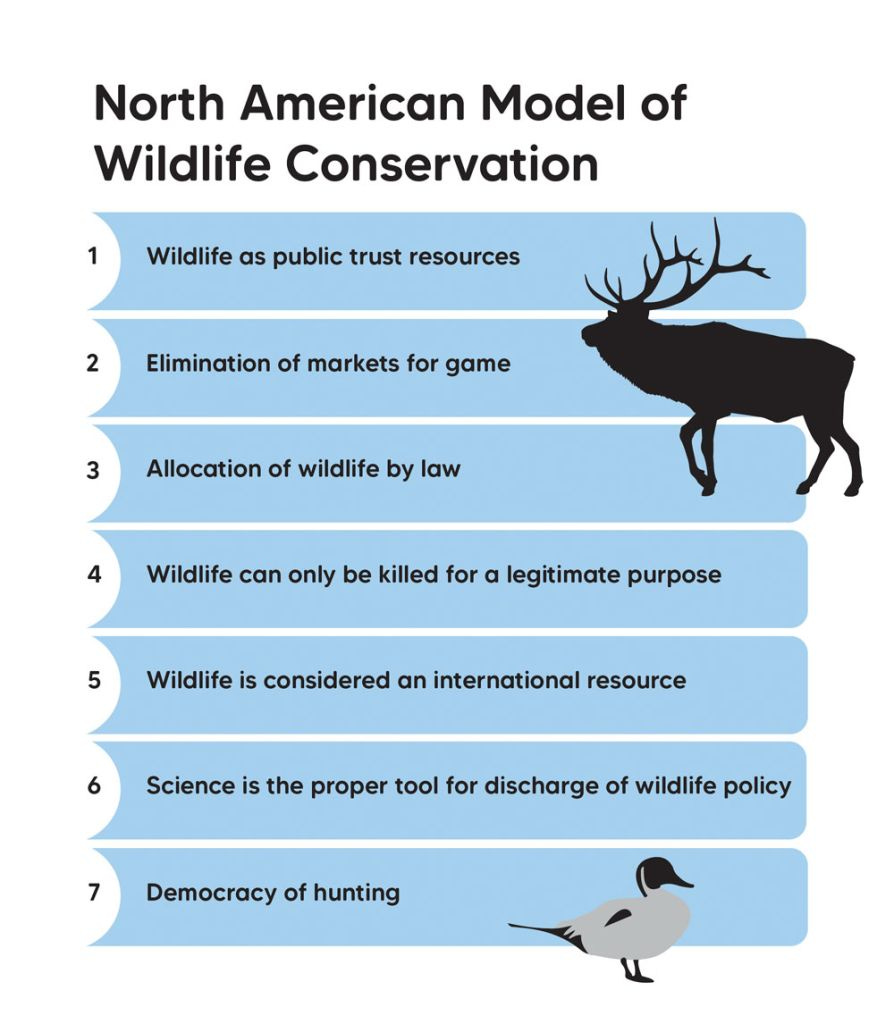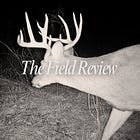“Of all the questions which can come before this nation, short of the actual preservation of its existence in a great war, there is none which compares in importance with the great central task of leaving this land even a better land for our descendants than it is for us.”
THEODORE ROOSEVELT
Conservation is rarely an issue that fills up a news cycle.
It’s not foreign policy. People don’t take heated sides and wave flags over tree planting and public access. It’s not a political talking point that people argue over at family gatherings. Protecting our land is actually one of the rare things that most Americans generally agree on.
And that’s exactly what often puts it in danger.
Conservation is a quiet responsibility. It doesn’t usually demand attention, which means that it doesn’t get help even when it needs it. It’s not a red or blue issue, so it also doesn’t get the political urgency of other causes. It’s not a squeaky wheel because the people who should be doing the squeaking are usually miles into the backcountry with no reception.
Many assume the land will always be there. The rivers will keep flowing. The animals will return in the spring. And when something isn’t screaming for attention, it’s easy to take it for granted.
Conservation success also does not happen in four year increments. It’s a publicly unseen, invisible investment.
It can manifest itself in any form ranging from your local wildlife officer to your next-door neighbor and is often supported by small choices made every day by every day people who care enough to notice work that needs to be done.
When a complex problem like conservation is quiet, it’s easy to assume someone else is handling it.
A System That Works
The North American Conservation Model is something outdoorsmen like to brag about because somehow, we successfully developed a system where the people who use the land for hunting and fishing are also the ones who willingly pay to protect and preserve it.
The first time I bought a hunting license, I didn’t think about where the money went.
I know now that through systems like the Pittman-Robertson Act (also known as the Federal Aid in Wildlife Restoration Act of 1937), an excise tax on every firearm, ammunition or archery purchase gets funneled back to state wildlife agencies, funding habitat restoration, research, and hunter education.
You’re also funding conservation directly when you buy a hunting license, a fishing license, or a duck stamp.
Hunters and anglers, more than any other group, are responsible for keeping this conservation model running. It’s a system that has worked well, and is one of the best examples of how government is supposed to work.
In 2022 alone, Pittman-Robertson taxes contributed over $1.5 billion to conservation efforts. Since its inception in 1937, it has contributed over $15 billion.
Conservation is Personal
Different people will prioritize protecting different things.
Even before I started my hunting journey, I knew there were plenty of conservation groups out there doing good work. But when I decided to actually donate my own money, I had some trouble picking which one.
I wanted to make sure that whatever money I put toward conservation went to something that would have an impact on the places and species I cared about in the places I spend most of my time.
I firmly believe that conservation needs to start at a personal level.
Some people focus on habitat. They think that if the land is right, everything else will follow.
Others fight for access, making sure public land stays public, that gates don’t go up where they don’t belong, that anyone who wants to step into a piece of wild country will have the right to do it for years to come.
Some people care about single species. There are people who will dedicate their whole lives to making sure wild turkeys still gobble in the spring, or that mule deer can still migrate through the same high-country corridors they’ve used for centuries.
And then there are the ones who fight for the culture itself. They believe the real risk isn’t just about habitat loss or regulation changes, it’s the slow fading of the kind of people who wake up before daylight, step outside, and carry on the hunting and fishing traditions. They believe that if the next generation doesn’t learn, doesn’t care, doesn’t step up, then the rest of it—the habitat, the access, the species—will all disappear anyway.
This concern has created the ‘R3 Movement’, which stands for “Recruit, Retain & Reactivate” to make sure that these traditions don’t die with us.
To be honest, I’m still trying to balance where I put my support because I believe that each of these entry points to conservation are important.
Right now, I’m a member of Ducks Unlimited and donate to the National Wild Turkey Federation. I didn’t choose these two organizations because I only care about waterfowl and turkeys, I chose them because I feel like these two species need the most help where I hunt in Ohio.
While I don’t financially support additional conservation groups, I do support their efforts. I follow their accounts, share their events, encourage others looking to support the cause know they exist.
If you’re looking for a group, here are a few that I recommend looking into:
Ducks Unlimited: The leader in conserving, restoring, and managing wetlands and associated habitats for North America's waterfowl.
National Wild Turkey Federation: Focus on conservation of the wild turkey and the preservation of hunting heritage.
Trout Unlimited: Caring for recovery of rivers and streams so future generations can experience the joy of wild and native trout and salmon.
Pheasants Forever / Quail Forever: Pheasants Forever, including its quail conservation division, Quail Forever, is the nation's largest nonprofit organization dedicated to upland habitat conservation.
National Deer Association: Ensuring the future of the whitetail deer, wildlife habitat and hunting.
Mule Deer Foundation: Ensuring the conservation of mule deer, black-tailed deer and their habitat.
Rocky Mountain Elk Foundation: Ensures the future of elk, their habitat and our hunting heritage.
Delta Waterfowl Foundation: Delivers science-based duck production programs, habitat conservation, critical research, and waterfowl hunting in North America.
Backcountry Hunters & Anglers: Seeks to ensure North America's outdoor heritage of hunting and fishing in a natural setting through education and work on behalf of wild public lands, waters, and wildlife.
Safari Club International: Defending the freedom to hunt and promoting sustainable-use wildlife conservation worldwide.
Boone & Crockett Club: Promoting the conservation and management of wildlife and its habitat, to preserve and encourage hunting and to maintain the highest ethical standards of fair chase and sportsmanship in North America.
Theodore Roosevelt Conservation Partnership: A 501c3 non-profit corporation that works to preserve the traditions of hunting and fishing through policy change.
This is by no means an all-encompassing list. If you support one that’s not included, please feel free to share it in the comments.
The Responsibility of Paying Attention
Most people want to protect what they know. The problem is, everyone’s version of that looks different.
A backcountry hunter in Montana likely sees conservation differently than a public land hunter in the Midwest. A casual fly fisherman, a waterfowl guide, and a wildlife biologist will each have a different version of what it means to be a steward of the land.
None of them are wrong, but none of them have a complete answer, either.
I still don’t know exactly where I fit into all this.
But I will continue to buy my duck stamp. I donate to NWTF and DU because I’m still trying to one day shoot a limit of ducks and find at least one more longbeard in my lifetime.
I look at the land I hunt and wonder what it’ll look like in 50 years.
The one thing I do know is that conservation only works when people take responsibility for it. Not just in the big, loud ways, but in the small, quiet ones, too.
The places we love don’t stay wild by accident.
The species we hunt don’t manage themselves.
The traditions we care about don’t pass themselves down.
And if we assume someone else is handling it, we’re already losing.
From My Desk:
What I’m Thinking/ Doing: Speaking of habitat management, my backyard habitat was deforested this week by my friends at American Electric Power. Needless to say we’ve already started mocking up plans to build a new deck to get some of our privacy back once the ground thaws.
On Deck for Monday: Looks like a standard week on the horizon, but we’ll see what that looks like by EOD Monday.
From The Field Review Archives:
The Field Review is a space for exploring the intersection of work, life, and the great outdoors. It’s about figuring ‘it’ out—whatever your ‘it’ might be.
Every Sunday at 10AM EST, I share ideas, insights, and conversations that help break through the noise, offering a real look at how we can all keep moving forward.
If you have any thoughts, questions, or topics you'd like me to explore in future newsletters, feel free to reach out!
Venture Onward,
Jack







